|
From the evening Mass of the Lord’s Supper until Evening Prayer on Easter Sunday, the Church celebrates a very special period called the Paschal Triduum. As the USCCB explains, the Easter Triduum is the summit of the Liturgical Year which “marks the end of the Lenten season.” Because of this important spiritual shift, there are some symbols used during this liturgical season that are unique to the Paschal Triduum, and I hope that you might find and reflect on these symbols this year as we commemorate the life, death, and Resurrection of Christ.
Holy Thursday Holy Oils The Holy Oils that are used by the Church throughout the year (Oil of the Sick, Oil of the Catechumens, and Holy chrism) may be presented during the entrance procession of the Mass of the Lord’s Supper on Holy Thursday. These oils are blessed by the Bishop during the Chrism Mass—which can happen on Holy Thursday or another time during Holy Week—with the priests of the diocese gathered at the local cathedral. During this celebration, all of the priests present renew their priestly vows. Ringing of the Bells During the “Gloria” which is sung on Holy Thursday, we hear the altar bells ringing! We are celebrating the Mass for the last time until the Easter Vigil, and the Church is in mourning so the bells will remain silent until we sing the “Gloria” again. Washing of the Feet As Jesus did at the Last Supper (John 14:1-17), the Church is called to wash the feet of the members of the Body of Christ during the celebration of the Institution of the Eucharist. This symbol of humility is a wonderful connection with the service of Christ. Ubi Caritas It is rare that the Church prescribes a specific hymn to be sung other than those prescribed for the Proper of the Mass, yet on Holy Thursday the Roman Missal says that we should sing the ancient song “Ubi Caritas” during the Offertory. A very simple song, the lyrics are very meaningful, especially for the Mass of the Lord’s Supper. Translated, they mean "Where charity is, God is there." Eucharistic Procession and Reposition The Church’s tabernacle, while normally filled with the Blessed Sacrament and reserved hosts, is emptied and brought to the Altar of Repose where the faithful are invited to join in Adoration. This procession is meant to be of great importance for the community and reminds us of the walk that Christ is about to take the following day on the Via Dolorosa, but instead of being nailed to a cross, we place our King in a place of honor. Good Friday Fonts After the Mass of the Lord’s Supper on Holy Thursday, churches are supposed to empty their Holy Water fonts “in preparation of the blessing of the water at the Easter Vigil, and it corresponds to those days on which the Eucharist is not celebrated (i.e., Good Friday and Holy Saturday).” (EWTN) Prostration On Good Friday, the Church is mourning the death of Christ and is full of sorrow. In response to this sorrow, the priest (and deacon, if present) prostates himself in front of a stark, barren altar. There is no music and none of the regular pomp and circumstance that comes with the beginning of a liturgical celebration. No sacraments are to be celebrated but that of penance and the anointing of the sick. The earth has gone quiet. No Invitation Normally, when a priest begins Mass, he invites us all to pray along with him, saying, “Let us pray.” During the Celebration of the Lord’s Passion (Good Friday), no such invitation is made. The priest just begins his invocation. Solemn Intercessions You may find that the prayers of the faithful may take longer than normal. Your church may sing them or have them chanted, with some kneeling and standing interspersed. Adoration of the Holy Cross There are many ways in which the Celebration of the Lord’s Passion is different from other liturgical celebrations, and the adoration of the Cross is certainly one of them. We are invited to come forward and spend time in veneration and adoration of the Cross on this most solemn of days – the day on which Christ perished while hanging from the very cross which we venerate. You may notice people genuflecting to the cross – this is something reserved specifically for Good Friday, out of veneration and sorrow for the blood which was shed and soaked up by the wood of the cross. Communion The Celebration of the Lord’s Supper is not a Mass. It is the one day out of the year in which no Mass is celebrated anywhere on Earth. Therefore, when we come to the celebration, there is no Eucharistic Prayer or any prayer related until, after the Adoration of the Holy Cross, the priest or deacon brings out the Blessed Sacrament and begins praying the Agnus Dei as it is normally done at Mass, which follows with himself and others receiving the Blessed Sacrament. Holy Saturday and the Easter Vigil Decoration When one walks into the church for the Easter Vigil, they will notice a big change from the celebrations of Lent and Holy Week – the church should be decorated with lilies, white and gold, and a joyful décor! While the lights should be turned down as well, we are anticipating the Resurrection and the excitement is palpable! The Light of Christ From the fire used to light the Easter Candle, the inscriptions on the Easter Candle, and the procession into the Church, light is integral to the Easter Vigil due to its representation of the "light of Christ, rising in glory," scattering the "darkness of our hearts and minds." We process into the Church with the Easter Candle, “just as the children of Israel were guided at night by the pillar of fire, so Christians follow the risen Christ” as we proclaim The Light of Christ while singing praises of thanksgiving! (USCCB) Readings Instead of the standard 3 readings at a Sunday Mass, at the Easter Vigil we generally hear anywhere between 5 and 9 readings. As we prepare to celebrate some of the holiest days in our Church, I invite you to observe the different rituals, customs, and symbols present during the Triduum. May you have a blessed and joyous Easter season! Question for Reflection: What changes do you notice from the Lent to Easter season? For more resources to guide you throughout the Triduum into the Easter season, please click here.
1 Comment
“Remember you are dust and to dust you shall return.” We are now over a week into our Lenten journey; the reality has set in. We are questioning our decisions to give up sweets or the snooze button, and we are tired. Perhaps we have even failed a few times. The forty days seem to drag, and the somberness of the liturgical season has made itself known. Yet during the Ash Wednesday service at my parish, our priest was talking about the joy of the season and how our failures are meant to bring us closer to Our Lord. In a word, he talked about the hope of Lent. As someone who would rather stay in the joy and light of the Christmas season, I was really challenged by Father’s perspective, especially now, after my many failed attempts to give up the snooze button. We often focus so much on the “giving up” aspect of Lent that the words joy and hope do not seem to go hand in hand with this season. This is especially true when I think of the phrase that kickstarts our Lenten journey: “Remember you are dust and to dust you shall return.” On a superficial level, this sign on our forehead doesn’t look so good. Where are the hope and joy in having ashes smeared on your forehead? Throughout his homily, Father also encouraged us to change our perspective on the difficult acts of penance we are attempting and instead to live in the reality that this season could be a time of true conversion of heart. Our Lord desires us to be holy! The acts of penance we choose could be the very means He uses to break us of habitual sin and to bring a deeper level of charity into our hearts. Conversion of heart and holiness? I could get behind that; I can see the joy there! The priest did not say “if you fail your resolutions” but “when you fail.” This is a reminder of our weakness and utter dependence on Jesus, who will be making His way to Calvary soon, in Scripture, to save our souls. This dependence on Him will assist in our conversion of heart, considering “we can do nothing without him” (John 15:5). So: it’s alright to fail, but run back to Him. Beg Him for more grace! Now let’s read this sentence from the Ash Wednesday service one more time: “Remember you are dust and to dust you shall return.” Where is the hope there? Father explained that this is the most hopeful reality yet. Ultimately this reminder of our sinfulness and our death paradoxically represents the life we have in Christ, the Resurrection of Jesus, and the hope we have of entering into the Eternal Reward. Even though the phrase seems bleak, it can propel our hope throughout these 40 days. We have something to strive for, to live for, and to love for. Though I have failed at my Lenten resolutions more times than I have not, I pray with the hope that my humanity might be resurrected, that Our Lord may convert my sinful ways, and that I may remember that this liturgical season is less about what I do and more about what the Lord is doing in my heart to get me home. What are ways you need to be renewed in hope and joy? How can you accept the failures that come with penance and run to Jesus this Lenten season? “Remember you are dust and to dust you shall return.” For more resources to accompany you on your Lenten journey, please click here. “Peter and his companions had been overcome by sleep, but becoming fully awake, they saw his glory and the two men standing with him.” -Luke 9:32 Twice in the Gospels we hear of the trio of disciples sleeping at pivotal moments in Christ’s life and ministry: at the Transfiguration – in this Sunday’s Gospel – and in the Garden of Gethsemane during Christ’s Agony. Both times, Christ is in deep prayer. And both times, Peter, James, and John are “overcome by sleep.” I get it. The group of men have just hiked up a mountain. It would have been normal to rest after such a grueling endeavor. Similarly, in the Garden, Jesus took the three disciples to pray after the Feast of the Passover—a long, filling meal complete with wine. I think of all the times I’ve napped after a holiday meal and sympathize with Peter, James, and John. In these scenes, they are so human. They become tired and rest their eyes. And yet, because of their physical tiredness, they miss out on God’s glory. In this week’s Gospel for the Second Sunday of Lent, Jesus is transfigured and his three beloved disciples are offered a glimpse of the glory to come—not only the glory of the Resurrected Christ, but the glory that awaits all men and women who allow themselves to be transformed by his grace. This Lent, I find myself asking, “Am I asleep with his disciples? What’s causing me to shut my eyes to God’s glory?” These questions are what have guided my Lenten journey as I discern how to grow in holiness this season. Each year, the Church in her wisdom asks us to reflect on what is making us spiritually sluggish and helps us prepare for Easter through prayer, fasting, and almsgiving. By ramping up in these three Lenten tenets, we can grow in our ability to see God’s will and the Holy Spirit at work in our lives. Had the Apostles been awake throughout the entirety of Christ’s Transfiguration, they would have basked longer in this glory—fear and confusion would not have gripped them. Lent calls us to wake up, to be alert, not only for the Easter celebration, but for God’s invitation to greater holiness throughout our lives. Pope Francis highlights Lent as the continuation of the “journey of conversion.” This journey is a lifelong one. And yet, seasons such as Lent, which focus on an even greater attention to prayer, fasting, and almsgiving, often spur us deeper and further on this journey towards Christ. As Pope Francis encouraged in his 2019 Lenten message: Let us not allow this season of grace to pass in vain! Let us ask God to help us set out on a path of true conversion. Let us leave behind our selfishness and self-absorption, and turn to Jesus’ Pasch. Let us stand beside our brothers and sisters in need, sharing our spiritual and material goods with them. In this way, by concretely welcoming Christ’s victory over sin and death into our lives, we will also radiate its transforming power to all of creation. The goal of Lent is not only Easter, but Christ Himself. This Lent, may our participation in prayer, fasting, and almsgiving help us shake off the drowsiness that shuts our eyes to God’s glory. For more resources to accompany you throughout your Lenten journey, please click here. Questions for Reflection: Am you asleep with Christ's disciples? What’s causing you to shut your eyes to God’s glory?” Christian accompaniment is best understood through the Gospel story of the Road to Emmaus. If Emmaus is Heaven, each of us is on our own journey: afraid, confused, and attempting to make sense of the joy of the Resurrection. Each of us needs someone to walk beside, someone who will minister to us by simply listening, then understanding, and advising. On this journey, our earthly traveling companion is on one side and Jesus is on the other. The disciples couldn’t have come to understand the Paschal Mystery or their relationship with it until they let Christ be their guide.
As a precursor to the 2018 Synod, the Synod of Bishops released their working document, or Instrumentum Laboris, on Young People, the Faith, and Vocational Discernment. In its second part, the document discusses the necessity for vocational accompaniment, defined as “a process that is able to unleash freedom, as well as the capacity to give and to integrate the various dimensions of life within a horizon of meaning.” Though a rather lofty definition, it is clear that accompaniment centers around a proper understanding of discernment. Discernment can be a confusing Catholic buzzword. For some, the mere thought of it causes extreme panic, while others understand it as equivalent to “religious life.” I can’t count the number of conversations I’ve had where someone leans over to me and asks in a hushed tone, “Are you discerning?” to which I respond bluntly, “EVERYONE is discerning!” Every young person is constantly discerning not only our capitol “V” Vocation (such as a call to religious life, the priesthood, or to marriage), but also our vocation for every year, month, or moment of our lives. Each day is an opportunity to ask to know God’s will. Even a small daily prayer invites Him to let the Spirit work in our lives. With this definition of discernment in mind, accompaniment is the simple act of being present to someone, forming a relationship in order to walk with him or her towards an understanding of Christ’s will. The Synod’s Instrumentum Laboris says that there are many kinds of accompaniment. Whether it be formal spiritual direction, psychological accompaniment, advisement from a trusted elder, etc., accompaniment is necessary for the spiritual journey. We cannot live out our faith alone. We need others to share with, to learn from, and to pray with in order to grow as children of God. In my own journey, I have been blessed to be accompanied by many different disciples. My parents were the first to show me what it means to be accompanied in and through love. In high school, a few wonderful teachers gave me room to grow and begin to understand how Christ was speaking in my life. In college, I learned how to open myself to totally new companions and walk with college-aged ministers. In the most traditional sense, an excellent diocesan priest and longtime friend welcomed me in spiritual direction last year and together we learn how God is calling me to serve Him as I grow as a person and daughter. I know accompaniment is important because when I try to walk the road alone, I am met with a sense of isolation and confusion. When I made the decision to study abroad in Rome for the semester, I never realized the sort of impact it would have on my spiritual life. Leaving my closest companions, faith friends, and spiritual director behind in the United States, I felt unable to cope with the new challenges I’m facing. I’ve come to realize that without those spiritual relationships, the journey towards Christ becomes far more difficult. To accompany and to be accompanied are not positions to be taken lightly, and hopefully this Synod will show the Church how to better foster these sorts of relationships. In a time where many of us are feeling betrayed or isolated by the Church, it is difficult to trust that She is the source of these types of reliable and authentic relationships. As young people, however, we have to trust in the healing mercy of the Holy Spirit and the grace bestowed upon our Church’s shepherds. It is not an easy time to be a Catholic or a young person, but that is all the more reason for us to persevere on the journey with a companion on one side and Christ on the other. 6/9/2018 An Interview with Fr. General Jacob Nampudakam SAC on the 40th Anniversary of his ConsecrationRead NowFr. Jacob Nampudakam SAC is the Rector General of the Society of the Catholic Apostolate. He was elected in October 2010 and is the first non-European Rector General. This interviewed was conducted by Catholic Apostolate Center Program Associate Julianne Calzonetti in Rome, Italy.
1. Matthew 4:1-3a: Jesus spent 40 days in the dessert: What have been some of your greatest trials in 40 years? Two main trials: First, I am always in favour of life. Following Deuteronomy 30, 19-20, I had to make a choice between blessing or curse, life or death. God challenges us to choose life. In life we find hope; the ability to live in wonder, nurture in love, and not despair. Hence when members show a spirit of defeatism and negativity- without making efforts to create life- it is challenging. Nothing is achieved by being chronically negative. “Rather, the one who loves Christ is full of joy and radiates joy,” as Pope Francis reminds us. Second, when members become instruments of disunity rather than unity; allowing themselves to be guided by worldliness instead of the Spirit. This is the antithesis of Jesus Christ, who tells us that His Kingdom is not of this world. Following anything other than the Spirit will lead to confusion and destruction; a problem which then takes root in the afflicted person’s heart. Thus, internal problems become external situations, which are very difficult to handle. 2. Joshua 5:6 The Israelites walked 40 years in the desert: What has been your greatest moment of trusting the Lord? “Abandon yourself to God,” St. Vincent tells us, “with perfect confidence and do not fear.” In breathing these words, we are graced with the bravery God willingly gives to go forth and proclaim the Gospel to all creation. We can also use such words to explain two of our missions, Peru and Vietnam. If we lived in the world, we would say such ambitions were impossible, as they were taken up by entities with very few members. Yet instead they are flourishing; for in our steadfast courage and faith, the Lord blessed us in a hundredfold. The moral of the story is this: trust the Gospel. Take no purse, no haversack. He is with you. Another element of surprise was my election as Rector General. It’s not easy to break the frontiers and boundaries set by International Congregations, but when the fresh air of the Spirit blows through the windows, thy will be done. 3. Jesus remained on earth 40 days after his Resurrection: What is your hope and mission, father, for the remainder of your term as Rector General, as well as the remainder of your time as Jesus' anointed one on his earthly pilgrimage? First goal: Make our holy founder known and loved by as many as possible; to offer his charism of the Union of the Catholic Apostolate in service of the Church’s mission. Second goal: Give the compass to God, listen to the cries of His people, and “be led forth with peace” (Isaiah 55:12) to the peripheries. May we be the soul that God brings to their feet, so that they may have the life in abundance He has promised. In all my journeys, what my eyes have seen cannot leave me unaffected. But in each, the open wound of my heart remains the same: for the innocent children who are deprived of love, laughter, family, medicine, education… human dignities that no person on this earth should be denied. We all have equal rights for the blessings given to us by the Creator. To live in luxury disregarding the poor around us- like the parable of the rich man and Lazarus- would be the greatest sin of a Christian. We are all poor before God. 4. 40 is seen as a generation in the Bible. What has changed in the Society and Missions? What has been made better/worse? Everything changes. We try to discern and respond to the signs of the times. Yes, the Society has grown. We have reached out to as many as 56 countries around the world. There are about 2400 members in the Society, and then, of course, the entire Pallottine Family. The scenario in the Church and all the religious Congregations is changing; and it’s moving south. Though this makes no difference; I believe it matters little where we are growing or diminishing in any part of the world. The Church is one body of Christ. Through the consecration we make, we become members of the Society. As so often said by me on visitations, we may be Italians, Germans, Polish, Brazilians, Indians etc., but we are all Pallottines, and one family. I do not believe in lamenting over the decline in one part of the world or rejoicing too much about the growth elsewhere. Such things happened in the past and continue to happen today. Tomorrow has not yet come. The Spirit moves where it wills! Success or failure – let history judge us. 5. As this generation ends, God makes another anew, just as the papacy of Francis is evermore on target with the teachings of Pallotti in Gaudete. How will you lead us in following his papal mission? The greatness of any Christian must be measured by his or her fidelity to the life of Jesus as we encounter him in the Gospel. For me, Pope Francis is someone who lives the Gospel in its radicality. The will of God is our sanctification. There are 3 similarities between our holy founder and Francis: 1. The life of Jesus as the fundamental rule of life and apostolate; 2. A poor Church for the poor; 3. Go forth to the peripheries of human life. These three steps are only possible when the first is achieved: Encounter the person of Jesus in the Gospel on a daily basis. 6. India: You are the first non-European Rector General. What have been the changes over 40 years you have seen in your country? While India as a country is slowly coming of age, what strikes me is the tremendous contribution that the minority Church- 2% of the Catholic population- is making to the Universal Church. In our Society- and the Pallottine Family as a whole- the growth in India is tremendous. No doubt, we are not talking about a perfect situation in all areas, just as in any other part of the world. The unique contributions of the Indian Pallottines are most fruitful where we are able to be faithful to our rich, spiritual traditions and work zealously to be instruments of peace and communal harmony. The 58 schools run by the Pallottines, with thousands of teachers and students from all religions, could serve as the best instrument to promote unity and peace in a world divided by religious disharmony. The One Almighty and Loving God is the Creator of every human person created in His own image and likeness. The ability to respect and love every human being, regardless of his nationality, culture or creed, and be able to see the face of God on each person, will make us universal human beings. The future of the Society, the Church, and the world itself will depend much on this ability to go to the most profound ontological and existential level and be universal persons. Building walls is a sign of innate fear and insecurity. Having grown up in a multi-religious context in India, where we played and grew up with Hindu, Muslim and Sikh youngsters, it does not frighten me to deal with one of a different faith. Experiences mould us. Let’s open up as a Society and work for the common good. But firstly, let’s open up our hearts. That is exactly the work of the Holy Spirit; who opened up the newly founded Church on the day of Pentecost. A second wind is often an unexpected gift. Whether it is discovered during a run, study session, or some other activity demanding intense focus and effort, what at first seems daunting and impossible to achieve suddenly becomes possible thanks to newfound strength and endurance. A second wind, while surely appreciated physically or mentally, can also be applied spiritually. As the Church celebrates her birthday on Pentecost Sunday, we can reflect on the incredible gift of the Holy Spirit who was sent by God Himself to provide the fledgling Christian faith a much needed second wind as apostles prepared to bring the Good News of Christ to the entire world.
One of the Gospel readings for Pentecost details our Lord’s promise to send the Holy Spirit to His disciples. In an earlier related chapter from John’s gospel, Christ Himself walks with the disciples and predicts His own Passion. He assures the disciples that they will not be abandoned as orphans, but will share in the very life of the Most Holy Trinity (John 14:15-31)! The consolation and comfort Jesus brought to those gathered in the Upper Room after His death and resurrection surely reminded them of this though He ordered them to not leave Jerusalem until “the promise of the Father” had been sent (John 20:19-23). It would not be until after Christ’s ascension, that the Holy Spirit would be sent upon the disciples and so enable them to carry out the Great Commission of our Lord, “Go therefore and make disciples of all nations, baptizing them in the name of the Father and of the Son and of the Holy Spirit, and teaching them to obey everything that I have commanded you.” While Christ had sent out the disciples to evangelize before (see Luke 10:1-20, cf. Matthew 10), these efforts were limited to “the lost sheep of the house of Israel.” Proselytizing the rest of the world would take place after the rejection of our Lord and would require grace to sustain the disciples through this incredible evangelical endeavor. Today, the faithful are not only entrusted with this mission, but have also been baptized and confirmed with the same Holy Spirit as was promised to Christ’s first followers! The Holy Spirit is truly God and is inseparable from the Father and the Son. Though Christ is seen, it is the Spirit who reveals Him. Thus, both are on a “joint mission” to reveal the visible image of the invisible God (see CCC 689). The Holy Spirit invites us to better know the Father and Son. Each person of the Trinity more fully deepens our understanding of God. As the Catechism says: Now God’s Spirit, who reveals God, makes known to us Christ, his Word, his living Utterance, but the Spirit does not speak of himself. The Spirit who “has spoken through the prophets” makes us hear the Father’s Word, but we do not hear the Spirit himself. We know him only in the movement by which he reveals the Word to us and disposes us to welcome him in faith. The Spirit of truth who “unveils” Christ to us “will not speak on his own.” (CCC 687) The Holy Spirit continuously reveals Christ to us when we make an effort to listen. Similarly, when we recognize and cooperate with the Holy Spirit dwelling within us, we are better able to contemplate Christ’s teachings and the great Mysteries of Faith. When we face discouragement or are unsure of a decision we must make, we are in similar circumstances to those waiting in the Upper Room. The gifts of the Holy Spirit strengthen our faith and helps us to judge our situations prudently. The courage to continue Christ’s mission and not be defeated by discouragement or rejection is not only an incredible witness to the Church, but also a recognition that the Holy Spirit continues to work among us wherever we are in our journey of faith! Just as the Holy Spirit descended upon our Lord at His baptism to start His mission on earth, so too did Christ send the Holy Spirit upon the disciples in the Upper Room as they began their ministry. Like the disciples, let us dare to be open to the Holy Spirit’s activity in our daily lives as a much needed second wind as we continue our Lord’s work so that at the end of our days, we may hear spoken to us, “Well done, my good and faithful servant ... Come, share your master’s joy.” Question for Reflection: Can you recall a moment when the Holy Spirit gave you the courage to continue through a difficult trial? 5/1/2018 Everyday Holiness: Ten Quotes from Pope Francis’ Apostolic Exhortation to Help You Be Holy in Today’s WorldRead NowOn April 9, the Solemnity of the Annunciation of the Lord, Pope Francis released his latest Apostolic Exhortation: Gaudete et Exsultate (Rejoice and Be Glad): On the Call to Holiness in Today’s World. This is the third Apostolic Exhortation of his papacy, following Evangelii Gaudium, the Apostolic Exhortation on the Proclamation of the Gospel in Today’s World and Amoris Laetitia, a post-synodal Apostolic Exhortation on Love in the Family. What was his goal? “To re-propose the call to holiness in a practical way for our own time, with all its risks, challenges and opportunities" (GE 2). Without delving too much into a theological or heady definition of holiness, Pope Francis invites us simply and straightforwardly to open ourselves to the specific and unique mission God has created us for. In this, he says, lies true joy and freedom. Our Holy Father takes us back to the Source of Holiness, Jesus Christ, and encourages us to look to the Beatitudes as guides for holiness. Below, I’ve compiled some of my favorite quotes and key take-aways from this approachable, yet profound, exhortation. 1.“The Lord asks everything of us, and in return he offers us true life, the happiness for which we were created. He wants us to be saints and not to settle for a bland and mediocre existence.” -GE 1 Pope Francis echoes his predecessors in reminding us that following Christ leads to an abundant, joyful, and exciting life. We often do not equate holiness to greatness, but that’s what it is. Though God expects a lot from us, he gives us so much more: true life and happiness. Our Holy Father is reminding us that holiness makes us truly happy by calling us to live abundantly. 2. Holiness is the most attractive face of the Church. -GE 9 Many of us might have grown up thinking that holiness is boring and that sanctity is impossible, so why is Pope Francis saying that holiness is the most attractive face of the Church? What does this mean? When we embrace holiness, we become who we were created to be; we become our most authentic selves. This authenticity, this freedom, is attractive. It makes the Church come alive through each of her members. When we are striving for holiness, we are becoming our best and most loving selves. This witness is what evangelizes – it invites others to pursue their own journey of holiness. 3.The important thing is that each believer discern his or her own path, that they bring out the very best of themselves, the most personal gifts that God has placed in their hearts (cf. 1 Cor 12:7), rather than hopelessly trying to imitate something not meant for them. We are all called to be witnesses, but there are many actual ways of bearing witness. -GE 11 Oftentimes, it’s easy to compare ourselves with others. It’s tempting to see the gifts and talents of others and ask ourselves why we do not have the same. The Body of Christ is made up of all different parts – each necessary for the functioning, health, and well-being of the body itself. Here, Pope Francis reminds us that there are as many paths to holiness as there are people. Each of us was designed specifically by God for a unique purpose. We do not have to become St. Francis, St. Vincent Pallotti, St. Mother Teresa, St. Joan of Arc, or St. Francis de Sales. We become saints by becoming most fully and authentically who God made us to be: ourselves. 4.To be holy does not require being a bishop, a priest or a religious. We are frequently tempted to think that holiness is only for those who can withdraw from ordinary affairs to spend much time in prayer. That is not the case. We are all called to be holy by living our lives with love and by bearing witness in everything we do, wherever we find ourselves. – GE 14 In this passage, Pope Francis reminds us of the universal call to holiness which has its inception in the Gospel and which the Church has explicitly reminded us since the closing of the Second Vatican Council. Holiness is not reserved for those with theology degrees, the ordained, monks, or religious. It is not reserved for those who work for the Church or volunteer with acts of service. It is for each and every one of us: the high school student studying for exams, the single parent, the politician developing laws for his or her constituents, the factory worker, the refugee far from home, the married couple starting or raising a family, the list goes on and on. Whatever vocation, profession, or place in life we find ourselves in, let us infuse it with love in order to become holier each and every day. 5.In the Church, holy yet made up of sinners, you will find everything you need to grow towards holiness. The Lord has bestowed on the Church the gifts of scripture, the sacraments, holy places, living communities, the witness of the saints and a multifaceted beauty that proceeds from God’s love, “like a bride bedecked with jewels” (Is 61:10). -GE 7 Sometimes the journey of holiness seems impossible. We can get tired and beaten down by our own weaknesses and failures, and by the multitude of temptations and trials that seem to present themselves at every step. Here, Pope Francis is reminding us that Jesus Christ gives us everything we need to be holy. Our growth in holiness cannot exist apart from Christ’s Church. Though the Church is not perfect, it is in the Body of Christ that we have access to Scripture, the sacraments, and community, so that we can have the help of others who are also striving for holiness. Do not forget to use these invaluable resources, to go back often and drink from the well of life, in order to get the strength you need to continue your journey of holiness. 6. This holiness to which the Lord calls you will grow through small gestures. -GE 16 This quote reminds me of the often-referred to statement of St. Mother Teresa: “…do small things with great love.” Holiness does not happen overnight. It involves millions of decisions and actions – each one leading us closer to or further away from our goal. Pope Francis reminds us that we are called to grow in holiness in a way that may seem small and ordinary. Cleaning a dish can become an act of holiness—so can changing a diaper, writing a paper, tending a garden, submitting a work report, or sitting in traffic. Greatness, then, lies in the little things. This is the little way St. Therese of Lisieux shared with the Church. It can lead to great sanctity. 7.Each saint is a mission, planned by the Father to reflect and embody, at a specific moment in history, a certain aspect of the Gospel…Every saint is a message which the Holy Spirit takes from the riches of Jesus Christ and gives to his people. -GE 19, 21 Each of us are a product of our times. We were born at a specific time and place in order to live out a specific mission. We don’t often think ourselves as “a mission,” as Pope Francis says, or as “a message,” but these are beautiful ways to think about our lives and the weight and dignity of each one. By thinking about our lives in this way, we see that each of us is planned by the Father at this exact moment in time and that our lives, actions, and interactions with others are invaluable. If we do not share the message God created us to impart, no one else will. 8.Just as you cannot understand Christ apart from the kingdom he came to bring, so too your personal mission is inseparable from the building of that kingdom…Your identification with Christ and his will involves a commitment to build with him that kingdom of love, justice and universal peace. -GE 25 After Christ’s Resurrection and before his Ascension into heaven, he gave his disciples a clear command: “Go, therefore, and make disciples of all nations, baptizing them in the name of the Father, and of the Son, and of the holy Spirit.” The same commission resounds for us today. Jesus came not only to overcome sin and death, but to build his kingdom on earth. For this reason, Pope Francis reminds us that we “cannot understand Christ apart from [his] kingdom.” Before joining Christ in Heaven, we’ve got work to do. We join Christ in his mission by working to create a world of “love, justice and universal peace.” Holiness, therefore, is not for us alone, but for society, for others, and for the world. 9.The presence of constantly new gadgets, the excitement of travel and an endless array of consumer goods at times leave no room for God’s voice to be heard…Sooner or later, we have to face our true selves and let the Lord enter. -GE 29 The world today is an incredibly noisy place. Our access to technology enables us to be plugged in at almost every moment of the day. We see screens on our computers, smartphones, and televisions; we are bombarded by advertisements; we spend hours on social media. Without demonizing technology or refuting its benefits, Pope Francis reminds us of the temptation to drown out the voice of God with noise. If we are unable to hear the voice of God, then we will be unable to attain the holiness to which we are called. How can we carve out more time for God today in silence and in prayer? 10.Do not be afraid of holiness. It will take away none of your energy, vitality or joy. On the contrary, you will become what the Father had in mind when he created you, and you will be faithful to your deepest self. To depend on God sets us free from every form of enslavement and leads us to recognize our great dignity. -GE 32 Our world often views holiness as boring, enslaving, or downright impossible. Here, Pope Francis beautifully reminds us that holiness leads to true authenticity and freedom. Rather than limit our lives or diminish them with rules, regulations, and boredom, holiness leads to joy and vitality. Embracing who we were made to be leads to true happiness and satisfaction, rather than chasing the empty things of this world or trying to be who we are not. Let us not fear holiness, but strive for it wholeheartedly! **This is part one of a two-part series of quotes from Pope Francis’ latest Apostolic Exhortation: Gaudete et Exsultate. For more information and resources on Gaudete et Exsultate, please click here. Questions for Reflection: Do these quotes from the Holy Father surprise or excite you? How has your perspective of holiness changed after reading some of these words from Pope Francis? The Easter season is an incredible time of celebration and joy for the Church. Jesus Christ, after being tortured and publicly executed, has resurrected from the dead and restored us to the heavenly communion from which sin had kept us. Death, solitude, and fear no longer have the last word; eternal life for the faithful is no longer impossible thanks to God’s great sacrificial love. And yet, death is still a certainty for each of us. At times, it can be difficult to cope with the death of a loved one, especially if it is unexpected or tragically sudden. How can one reconcile death with the elation with which we celebrate death’s demise at Easter?
I like to recall the words of Reverend Paul Scalia at the funeral Mass of his father, Supreme Court Justice Antonin Scalia: “It is because of [Jesus Christ], because of his life, death and resurrection that we do not mourn as those who have no hope, but in confidence we commend [the deceased] to the mercy of God.” While Christian funerals themselves can be somber occasions, their focus is not on the end of the departed’s life, but rather on the hope of his or her reception of God’s mercy and sharing in the eternal victory of Jesus. This is not to say that grief and other emotions have no place through the final committal—they are very real and should be allowed to fully run their course—but as Christians we unite any sufferings in this life to Christ’s and so recognize their redemptive values and purposes. The annual celebration of Easter, then, recalls the impossible achievement of Christ’s resurrection, “the true hope of the world, the hope that does not disappoint.” As Saint John Paul II quoted St. Augustine, “We are an Easter People and ‘Alleluia’ is our song!” If you look at the Order of Christian Funerals, you can see this hope so wonderfully imbued in the liturgical norms. Always calling to mind the merits and glories of Christ’s Resurrection, the celebrant leads the congregation in recalling the baptismal promises of the deceased: dying to self and the rejection and repentances of sin results in being raised like Christ in the merciful goodness of God on the last day. And it doesn’t end there. As Saint Ambrose preached, “We have loved them during life; let us not abandon them in death, until we have conducted them by our prayers into the house of the Lord.” We should continue to pray for the dead. The Mass, as Reverend Scalia reflected, is the best way of doing this: Jesus Christ is the same, yesterday, today and forever… this is also the structure of the Mass—the greatest prayer we can offer for [the deceased], because it’s not our prayer but the Lord’s. The Mass looks to Jesus yesterday. It reaches into the past— to the Last Supper, to the crucifixion, to the resurrection— and it makes those mysteries and their power present here, on this altar. Jesus himself becomes present here today, under the form of bread and wine, so that we can unite all of our prayers of thanksgiving, sorrow and petition with Christ himself, as an offering to the Father. And all of this, with a view to eternity— stretching towards heaven— where we hope to enjoy that perfect union with God himself and to see [the deceased] again, and with [them] to rejoice in the communion of saints. The Church, has always upheld the merits of praying for the dead, especially for the souls undergoing final purification of venial sins in purgatory. As the Catechism notes, the sacrifice of the Mass transcends time and space to unite the faithful on earth, in Heaven, and those in Purgatory to Christ in Holy Communion (cf. CCC 1391-1396). In praying for the dead, much good can thus be done for them who otherwise might not be remembered beyond the grave! As we continue to praise Christ’s Resurrection at Easter, remember to intercede for those who await being raised up themselves. Just as we implore the saints to pray for us, so too do the souls in purgatory desire to be prayed for as they undergo final preparation for Heaven. Just as the Universal Church links the faithful of God across earth, so too does this Heavenly Communion unite believers in Christ’s love as celebrated at Mass and recalled in His Passion and crucifixion. May the glories of Easter move us to rejoice in God’s eternal victory over the grave and prepare to reunite us to those who have gone before us in Faith. Eternal rest grant unto them, O Lord. And let the perpetual light shine upon them. And may the souls of all the faithful departed, through the mercy of God, rest in peace. Amen. Question for Reflection: Did you know that praying for the dead is considered a spiritual work of mercy? This Sunday's reading from Luke is from one of my favorite passages in the Gospel. We pick up with the two disciples who just encountered Jesus on the road to Emmaus. Whatever business these disciples had out in the countryside, they abandoned their plans after their encounter with Jesus and ran back to Jerusalem to share what had happened. The Gospel says that “While they were still speaking about this, he stood in their midst and said to them, ‘Peace be with you.’” Based on how abruptly Jesus appears to the rest of the disciples, we can imagine that they were incredulous at what Cleopas and his companion were telling them. As with “Doubting Thomas,” it seems that the other disciples also needed to see in order to believe.
It’s interesting to compare the encounter on the road to Emmaus to the interaction that takes place here. When the two disciples met Jesus on the road to Emmaus, they had no idea it was him. He walked with them, developed a rapport with them, and only then did he challenge their worldview and lack of faith in the promises of God. He gently rebuked them, opened up the Scriptures to them, and then broke bread with them. And it wasn’t until that moment that they truly understood who Jesus was and how he fulfilled the Scriptures: “Were not our hearts burning within us while he spoke to us on the way and opened the scriptures to us?” Jesus was patient, meeting them where they were and letting them understand God’s work at their own pace. When Jesus appears to the rest of the disciples, he seems to appear out of nowhere. They all panic and think he’s a ghost until he proves his physical presence to them: he shows them his wounds and even eats something right in front of them. It seems he has the intent of driving the point home, opening their minds to understand the Scriptures. This time, it’s without rebuke, without judgment or frustration. He instead gives the disciples something to look ahead to: “You are witnesses of these things… I am sending the promise of my Father.” He doesn’t just explain the past, but also hints at what’s to come! I love this passage because it speaks loudly to our tendency to not really take matters of faith to heart. And it’s so easy to do. Even for a person of faith, the Passion, death, and Resurrection of Christ can seem completely outrageous! We can be slow to understand God’s plan and actions in the world and in our lives, especially when they are different from our own. Even saints like Mother Teresa experienced doubt at times. But we can take heart in knowing that, when these times of doubt come up, Jesus will make himself known to us in some way, much like he did on the road to Emmaus and in his appearance to the disciples in Jerusalem. He may not be as explicit as we’d expect; it can come through a word from a friend, a kind gesture from a stranger, or even our own actions toward others. God uses all the experiences and encounters in our lives to invite us to encounter him, too. Just like on the way to Emmaus, he walks with us, befriends us, and shows us the truth. Sometimes when we are slow to understand, he acts more directly and obviously in our lives, as he did with the disciples in Jerusalem. As we continue this joyful season of Easter, let us always listen to those times our hearts are burning within us. It is then that God speaks to us most clearly, if only we pay attention to Him. Question for Reflection: How is God walking with you this Easter season? This Sunday the Church celebrates the Feast of Divine Mercy, a fairly new feast day in the Church. Pope St. John Paul II, who declared Divine Mercy Sunday formally in 2000, stated that, “This [day] is the Easter gift that the Church receives from the risen Christ and offers to humanity.” I never understood that phrase more than when I went on pilgrimage to Poland. In the summer of 2016, I had the privilege of going to Krakow for World Youth Day. The pilgrimage was filled with many graces that I am still unpacking today. 2016 was declared an Extraordinary Jubilee Year of Mercy by Pope Francis, and World Youth Day was held in the country where the Divine Mercy devotion was birthed. Mercy and grace surely abounded that year. Early in the trip, we experienced a day that weighed heavy on our hearts. Our group leader announced that we would make a morning trip to the Auschwitz-Birkenau Concentration Camp Memorial and Museum. As a group we made the decision that, as a sign of respect for the more than one million people who lost their lives at that dark place, we would not speak while we were on the grounds. The silent walk through the memorial shook me to the core. The sadness was hard to comprehend, and the absence of God felt real. As we were nearing the end of the memorial, we came upon a tablet that read the same quote in different languages from all over the world. The quote began like this, “Forever let this place be a cry of despair and a warning to humanity…” That was my experience of the memorial: a cry of despair. After we returned to the bus, we departed for the Sanctuary of the Divine Mercy, where St. Maria Faustina Kowalska lived and is now buried. A basilica has been built as a shrine for Divine Mercy at the Sanctuary and was named “the Capitol of the Divine Mercy devotion” by St. John Paul II. The juxtaposition between Auschwitz-Birkenau and the Divine Mercy Shrine were too extreme for my heart. I was unprepared for the transition from a witness of utter despair to complete hope. Still in agony over our morning visit, I waited in line to get into the chapel where St. Faustina was laid to rest. In the chapel, Adoration of the Blessed Sacrament was also taking place. I was apprehensive to sit in the quiet with Our Lord and at the same time ready for some answers from Him. I walked into the chapel and received my answer from a familiar image hanging inside. In the chapel where St. Faustina is buried was a huge image that seemed to be made exactly for my desolate heart: the image of Divine Mercy; the image which came to St. Faustina in an apparition. It displays Christ in his glory blessing the world with one hand and touching his heart with the other. Two large rays beam out from his heart: one red and one white. There was Jesus with His open hands and open heart, summoning me. Jesus looked as if He was walking towards me, coming to me with His merciful love. The rays of red and white, representing the blood and water that come from His wounds, revealed His heart that desires to reach all of His children and reached me in that moment. Flowing from the heart of Jesus was the hope that was seemingly lost at Auschwitz and in the hearts of millions during WWII. For me, this was the answer to despair. At that moment I realized that although I have never experienced—and could never fathom—the suffering within the walls of that concentration camp, I could see that Christ’s mercy triumphs over all despair. It was triumphant during His perfect sacrifice on the Cross, and three days later at His Resurrection. Christ’s mercy does not hesitate to pierce our hearts, especially during times of suffering or despair in our lives. He only asks us to trust in that perfect mercy. Jesus asked St. Faustina to share with the leaders of the Church his desire that the first Sunday after Easter be declared and celebrated as the Feast of Mercy. It is no coincidence that St. Faustina died less than one year prior to the Nazi invasion of Poland. Perhaps Jesus appeared to her when He did because he anticipated the great need for mercy to flow over the world. Christ knows us, and longs to let His love and mercy pierce our hearts. He only asks us to trust in His sacrifice, His love, and His desire to know us and to be known by us deeply and intimately. When Christ revealed the image of Divine Mercy to Faustina, He asked for the image to be inscribed with three words: “Jezu, ufam Tobie” – “Jesus, I Trust in You.” As we celebrate the Feast of Divine Mercy this Sunday, let us trust in His infinite mercy and in His infinite love. Question for Reflection: How do you see God’s mercy alive in Scripture, history, or everyday life? To learn more about the Jubilee Year of Mercy, please click here. “Rejoice! Hidden within your life is a seed of resurrection, an offer of life ready to be awakened.” -Pope Francis What does Easter look like for you? Does it mean plates filled with sweets, a backyard sprinkled with hidden eggs, a large family gathering, wearing your Sunday best, a long evening at the Easter Vigil? The first Easter Sunday was comprised of an empty tomb, faces that went from fear and despair to bewilderment and excitement, and hands and feet that were pierced but glorified. But for all Christians, Easter Sunday is a day of transformation: darkness to light, despair to hope, death to resurrection. We have journeyed with Christ for 40 days in prayer, fasting, and almsgiving in order to reach this point of transformation. We have been made ready, through God’s grace, to join Him in the celebration of His victory over sin and death. And so Pope Francis reminds us to “Rejoice!,” for the resurrected life of Christ is offered to each and every one of us. Will you allow it to be awakened? The Paschal Mystery is so great that the Church will continue to celebrate this central event for the next 50 days until the Feast of Pentecost, on May 20th. I love the significance of the length of time. Though we have fasted with Jesus in the desert for 40 days, we celebrate as a Church for longer—symbolizing the ultimate victory of our efforts when united with Christ. Though we are called to have periods of intense fasting and prayer in our spiritual life, the end goal is the Resurrection. Let us not fail to celebrate the Easter season and let us celebrate it well! We do this by allowing the life of Christ to live within us long after the Lenten season. Pope Francis said, “The heartbeat of the Risen Lord is granted us as a gift, a present, a new horizon. The beating heart of the Risen Lord is given to us, and we are asked to give it in turn as a transforming force, as the leaven of a new humanity.” Will our hearts beat in time with Christ’s? Will we become the leaven of a new humanity? And if so, what does this even look like? The Gospels give us a few clues. On the night before Christ gave Himself over to be crucified, we read about an intimate encounter between Him and John who has come to be known through tradition as the “Beloved Disciple.” At the Last Supper, after Jesus has washed the disciples’ feet, we read in John 13:23 that “One of his disciples, the one whom Jesus loved, was reclining at Jesus’ side.” During this time of heightened anticipation, it’s an easy detail to miss. John was literally resting on the heart of Christ. He was also present at the crucifixion, the one who did not abandon his Master in this time of fear and confusion. Spending time with Christ in prayer, resting on His heart, allows our hearts to beat in time with His and helps us become “leaven of a new humanity.” The holy women who followed Jesus also understood this. They were present at Christ’s crucifixion and were the first disciples to whom Jesus appeared on the day of His Resurrection. May we look to the example of John and the holy women as we embark on this Easter season. Let us go frequently to meet the Lord and rest with Him by spending time in reflective prayer, reading Scripture, receiving the sacraments, and “washing the feet” of our brothers and sisters. These actions allow our hearts to sync with His. Let us go quickly to the tomb—as the holy women did— only to find it empty, so that we can return with the joyous news of the Resurrection and proclaim it to all who will listen. Pope Francis encourages us, “Let us go, then. Let us allow ourselves to be surprised by this new dawn and by the newness that Christ alone can give. May we allow his tenderness and his love to guide our steps. May we allow the beating of his heart to quicken our faintness of heart.” Questions for Reflection: How has your spiritual life transformed throughout Lent? How can you faithfully celebrate this Easter season? Click here for more resources to guide you through this Easter season. For some, Palm Sunday was a political event surrounding a political person that led to the greatest, most unexpected revolution the world has ever seen happen. Historically, the week leading up to Jesus’ Passion would have been the time of preparation for Passover, when many Jews from all the surrounding villages were in Jerusalem together. The gospels (Mt 21: 1-11) describe Jesus’ triumphant entrance into Jerusalem to the swaying of palm fronds and shouts of “Hosanna!” These were unmistakable prophetic signs of the Messiah-king, the one many Jews expected would finally overthrow their Roman overlords and re-establish Israel’s reign on earth, perhaps even violently—as a group called the “Zealots” expected. Yet there is a further symbol to this story: Jesus riding on a colt or ass, the sign of a humble and meek king. Jesus did not become the king they expected, but instead, the one God wanted. As Pope Francis said in his 2016 homily on the Feast of Christ the King, “The Gospel in fact presents the kingship of Jesus as the culmination of his saving work, and it does so in a surprising way. ‘The Christ of God, the Chosen One, the King’ (Lk 23:35,37) appears without power or glory: he is on the cross, where he seems more to be conquered than conqueror.” Like Jesus’ followers then, today we are susceptible to temptations of limited expectations. It is possible to see Jesus merely as a political and ethical teacher who died a martyr’s death and nothing else. On the other hand, we might project Jesus’ kingdom to a purely “other-worldly” realm. Since Jesus apparently wasn’t setting up his kingdom on earth (so we assume), we are tempted to sanitize Jesus of any “worldly” political or practical implications, and simply assume political engagement has limited place, or even runs counter to our task of evangelization. As Pope Pius XI wrote in his establishment of the Feast of Christ the King, “It would be a grave error…to say that Christ has no authority whatever in civil affairs, since, by virtue of the absolute empire over all creatures committed to him by the Father, all things are in his power…although he himself disdained to possess or to care for earthly goods, he did not, nor does he today, interfere with those who possess them.” Both interpretations—that Jesus was strictly political or that his work was merely “not of this world”—fail to take seriously not only Jesus’ public ministry and preaching, but the truly earth-shattering consequences of Jesus’ kingship won at the cross. The Catechism of the Catholic Church states that Christ, “exercises his kingship by drawing all men to himself through his death and Resurrection.” Jesus’ death and Resurrection are, simply, God’s victory over the world’s powers of sin and death so as to bring about the restoration of God’s people. To say yes to Jesus’ Resurrection is to say yes to life as part of a new creation and kingdom that starts now. Paschal faith involves the risk of making mistakes, being misunderstood or ridiculed, of not conforming to the expectations of the surrounding culture in order to expect something greater. It involves joining in the kingship of Christ in serving others, something we are able to share in as a result of our baptism. As powers of sin and death today loom heavy on our hearts, it is not enough to “have faith” but to do nothing. Following Christ calls us to witness to our faith in practical ways with full conviction because of Christ’s own experience of suffering, death, and Resurrection that has transformed our fundamental orientation to the world. As Christians, we desire peace, healing, reconciliation, and restoration. We serve our King by building up his kingdom on earth. Pope Francis challenges us, “A people who are holy…who have Jesus as their King, are called to follow his way of tangible love; they are called to ask themselves, each one each day: “What does love ask of me, where is it urging me to go? What answer am I giving Jesus with my life?” For more Lenten and Easter resources, please click here. As we continue through the Lenten season, it is natural that the newness of Lent has worn off. Maybe, if you’re like me, you have caught yourself on more than one occasion frustrated for “failing” at your Lenten plan. The reality is that Lent is not just about what we can do in terms of prayer, fasting, and almsgiving, but who we are becoming. In short, Lent is meant to teach us to love—to love in the desert, to love the daily crosses of life, and ultimately to join with Love Himself through the joy of the Resurrection. Let’s spend some time reflecting on these three types of love. To love in the desert. Even after the 30 years He spent in Nazareth, before He started His public ministry, our Lord withdrew to the desert by Himself for 40 days to pray, fast, and prepare for his mission. And as He did, we must also do. If we can encounter the love of God in the solitude of our hearts and in the quiet of prayer with Him, we will be better equipped to be able to share His love with the world. Time spent with God in the desert enables us to go out on mission. Lent reminds us—even in the deserts—that God is faithful through it all. To love the crosses. A few weeks ago, a wise priest told me to not just carry my cross, but pray for the grace to also love the cross. I’ll be honest, I shrugged the advice off initially. I don’t think I’m alone: it’s natural for us to struggle with our crosses and wonder why the Lord allows them to happen. But the beauty of Lent is that our prayer, fasting and almsgiving can allow our hearts to grow in this grace, be transformed by our crosses, and even come to love them. Let us meditate on the Passion of Christ throughout the Lenten season, asking Christ to help us embrace our cross in order to join Him in the glory of His Resurrection. To join with Love Himself. The good news for us is that the Christian life was never meant to be lived alone. For this reason, Christ instituted the Church in the Upper Room after his Resurrection. When we unite ourselves and our sufferings with the Body of Christ, we are not only participating in the mission of Lent, but the mission of our lives as Christians. We are called to build one another up throughout our lives of faith, including offering our prayers and sacrifices for the benefit of the Church. That being said, the point of these 40 days is not just to journey with each other, but towards Christ. He is our greatest mission partner, our chief example, and the cause for our joy. To join with Love Himself is the great adventure of Lent and to share in the joy of the resurrection is our great privilege as Christians. May He find us worthy this Lent of learning to love like Him. Questions for Reflection: How is your Lenten journey going thus far? Have you been able to keep your Lenten commitments of prayer, fasting, and almsgiving? Take a few moments to reflect on how you’re growing this Lent. For more resources to guide you along your Lenten journey, click here. “Remember you are dust, and to dust you shall return.” -cf Genesis 3:19
On Ash Wednesday, people around the world will hear these words while ashes are crossed onto their forehead. While this isn’t the only phrase that ministers can say during the distribution of ashes, it is the one that makes me stop and ponder the most. When I was younger, this phrase confused me. “Of course we aren’t ACTUALLY dust” was my thought. “When I get cut I bleed blood, not dust! I am made out of flesh and bone!” For years I thought this way, and for years I saw Lent as any other period of 40 days: normal. To me, there was nothing extraordinary about Lent except that it was the time leading up to Easter. Sure, I gave up chocolate and didn’t eat meat on Fridays, but that was it. It wasn’t until high school that I started to realize what exactly the implications of these words are. “Then the Lord God formed man of dust from the ground, and breathed into his nostrils the breath of life; and man became a living soul.” – Genesis 2:7 Dust is natural. It exists as the substance of inception of all mankind. By the will of the Father, through the working of the Holy Spirit, we were given life out of the dust. We often think of dust as the substance that flies through the air or sits on our dresser, not the substance from which we come. Yet God, in his Infinite Love, gave it meaning by transforming dust into our very beings, into humanity. As Pope Francis reflected in his homily on Ash Wednesday last year: “The mark of the ashes with which we set out reminds us of our origin: we were taken from the earth, we are made of dust. True, yet we are dust in the loving hands of God, who has breathed his spirit of life upon each one of us, and still wants to do so.” God, infinitely perfect and whole in himself, desired to create because of his love. We were made out of an outpouring of love of the Trinity. This understanding has changed the way I approach Ash Wednesday. Dust calls us to conversion. It reminds us of our beginning and our end—of our smallness, but also of the greatness of our God. Donald Cardinal Wuerl of the Archdiocese of Washington reminds us that during Lent “We are invited to see ourselves as dust again, to detach ourselves from the things of this world and empty ourselves so that we might be filled instead with God’s ‘breath of life,’ that is, with his eternal Spirit.” By contemplating our beginning and end, we are better able to focus on the eternal life offered by Christ and the resurrection to which we are called. Therefore, Ash Wednesday sets the tone for our Lenten journey as a particular day of fasting, inviting us into forty days of a desert experience as we prepare for the celebration of Easter. Ash Wednesday, helps us to “empty ourselves” as Cardinal Wuerl wrote, in order to be filled with God and more receptive to his promptings throughout the Lenten season. As Pope Francis said in his 2015 Ash Wednesday Homily, Lent helps us then to reorient ourselves “to the arms of God, tender and merciful Father, to trust Him and to entrust ourselves to Him.” The Distribution of Ashes is the only liturgical event of its kind; there is no other time in the liturgical year in which we are called to come forward as a Church and be reminded in such a profound way of our origin, our humanity, and our impending death. This enables us to focus more clearly on the eternal life won for us by Jesus Christ. Cardinal Wuerl continues, “By his Cross and Resurrection, though we be only dust and ashes, we will be made a new creation.” This Lent, I invite you to contemplate the phrase “Remember that you are dust, and to dust you shall return” more deeply. How can we let ourselves experience conversion in order to become a new creation? For more resources during Lent to prepare you for the Easter season, click here. Go, therefore, and make disciples of all nations, baptizing them in the name of the Father, and of the Son, and of the holy Spirit, teaching them to observe all that I have commanded you. –Matthew 28:19 How do you think the “mission statement posted on the wall” compares to the lived experience of the community following it? A dear friend of mine asked me this question after I shared about my long and tiring week. I was challenged by how people I was working with were approaching a situation. A mission statement that is written or spoken about, and the mission lived among a group, are expected to be the same. Yet I was conflicted by a recent experience of the opposite–my community was following something else. The Catholic Church is echoing mission-based language more and more in recent years. Phrases like “Go, therefore, and make disciples of all nations,” or “missionary discipleship” based on the call of Pope Francis in Evangelii Gaudium permeate our ministries and parishes. This is not something new; we have always been called to live out our baptismal promises and evangelize all nations. Now our approaches are being adapted to accommodate an ever-changing secular culture. As Matthew’s Gospel proclaims, we are “co-missioned,” working with the Father, Son, and Holy Spirit in sharing the Christian identity. From the personal to the global level, every Christian is invited, asked, urged, encouraged, and challenged to encounter someone who does not know about Christ’s life, death, and Resurrection. This Christian message had been overlooked in my recent experience within my mission-based community. What I valued in “the mission statement on the wall” was important in writing, words, and actions, but not everyone who I engaged with operated with the same spirit in mind. It struck me how different the culture was from what it promoted. Like the renewed movement in the Church for a new evangelization, I could see the need to “re-member” the reason and context behind our mission. Since then, I’ve taken time to reflect on how I engage with others and the communities I participate in. Am I living out the mission Christ called me to, or do I follow my own way? Pope St. John Paul II wrote in Redemptoris Missio about the trend in the modern world to function based on personal perspective without considering God, saying, “There is a tendency to reduce man to his horizontal dimension alone. But without an openness to the Absolute, what does man become? The answer to this question is found in the experience of every individual, but it is also written in the history of humanity with the blood shed in the name of ideologies, or by political regimes which have sought to build a ‘new humanity’ without God” (RM 1, 8). This is a very real human temptation that I discovered within my own community. I could see how individual preferences were valued over guidance and openness to the Spirit. The formed mission of the community was posted but not followed, spoken about but not acted upon. We had forgotten the story behind the mission. As we enter a new liturgical year, much like a new calendar year, there is an opportunity to reflect on the purpose behind our actions within our ministries, organizations, parishes, families, and communities. We can sit with God and ask challenging questions while holding ourselves accountable to the answers. My friend’s question led me to a collective examination of conscience that can take place right alongside my personal examination of conscience. Why are we here? What is it that we’re being asked to do? How do we share our gifts with one another and those we serve? What is the goal of our work? Who or what do we serve by following this mission? Am I and are we following these goals to the best of our ability? If ever there is an area of weakness, we can work to remedy it within the community. Followers of Jesus prepare their hearts to accept “The Great Commission” by participating in the works of mercy, the sacraments, prayer, liturgy, and fellowship. I am going to use this special time of Advent to recommit myself to my personal mission and communal mission. The ultimate “mission statement on the wall” is the one God has written on our hearts in baptism, “to go and make disciples,” through our witness and evangelization. In humility I must continue to ask myself, am I living this mission? Reflection Questions: At the beginning of Advent, take time to consider the communities you are a part of and their various mission statements. How do you contribute? How can you grow in faith and dedication to the ultimate mission of Christ and the Church? Click here to visit our Living As Missionary Disciples Resource Page. |
Details
Archives
July 2024
Categories
All
|
About |
Media |
© COPYRIGHT 2024 | ALL RIGHTS RESERVED

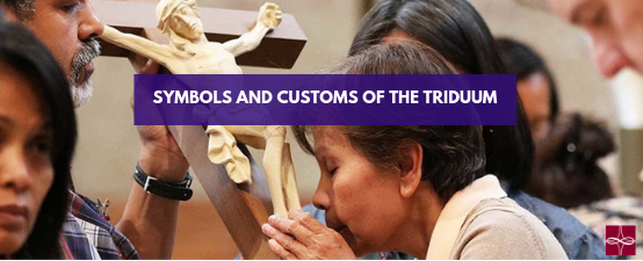

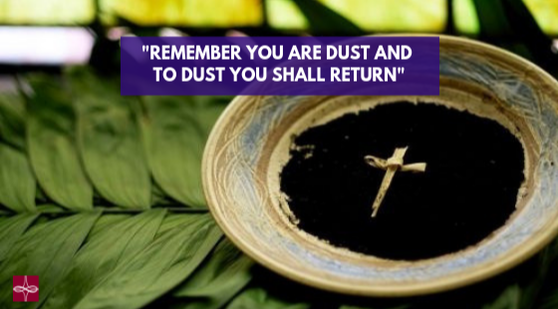

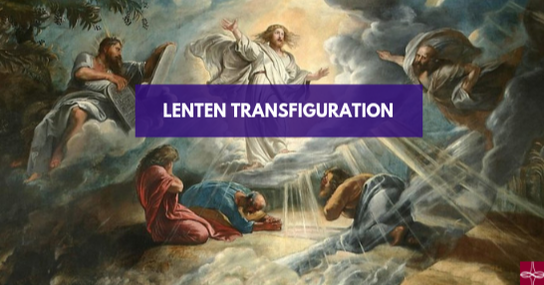



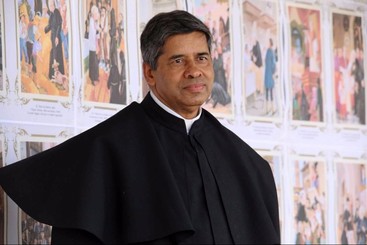
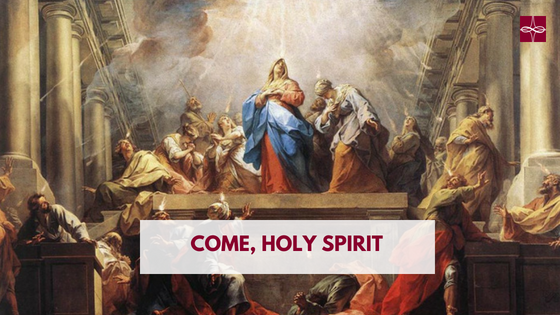

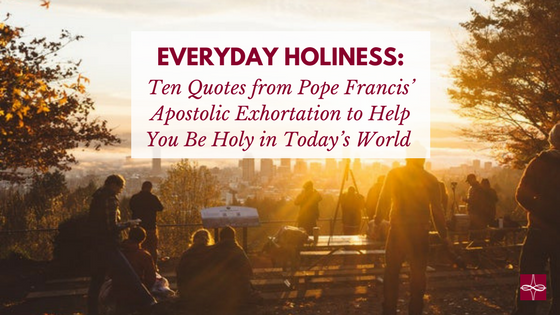

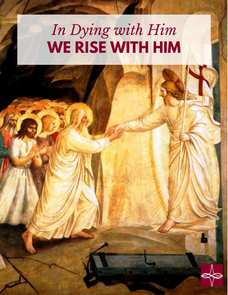

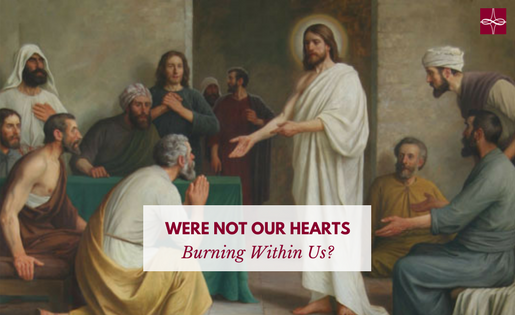

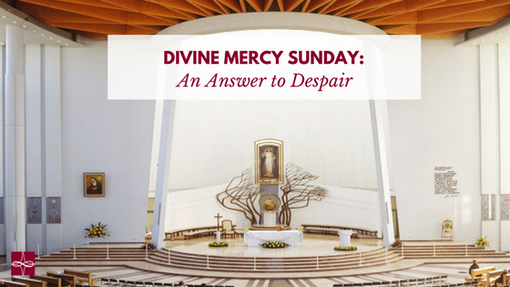

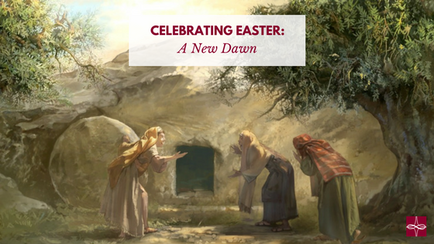

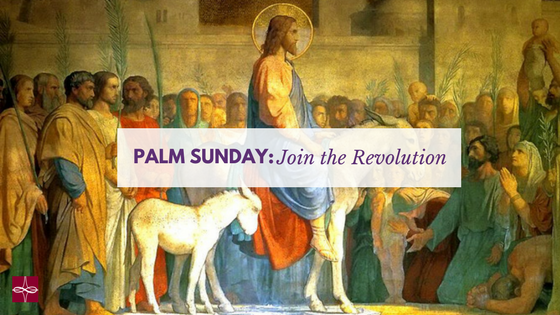

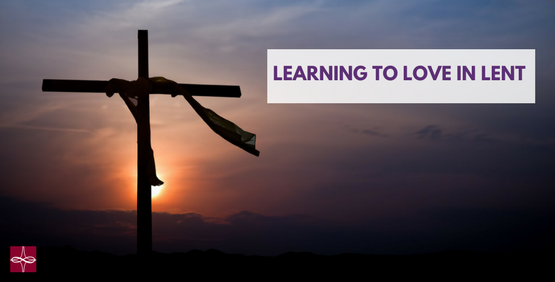

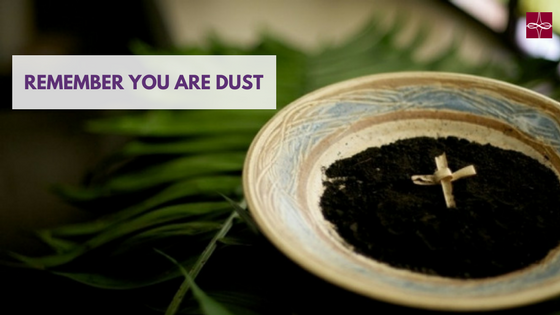



 RSS Feed
RSS Feed